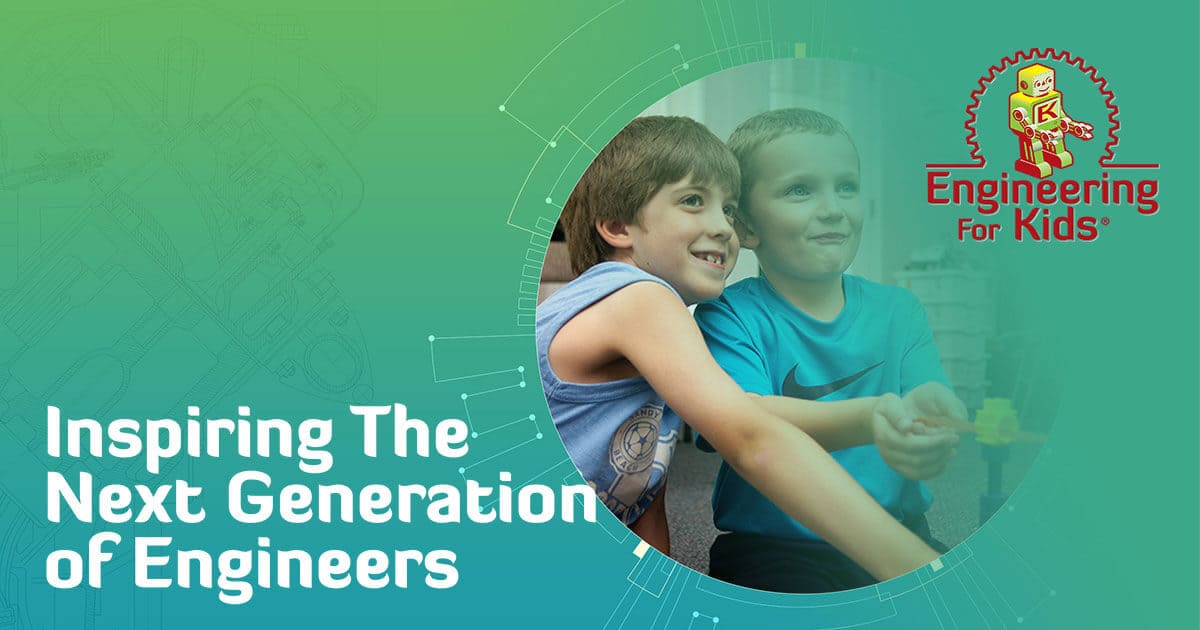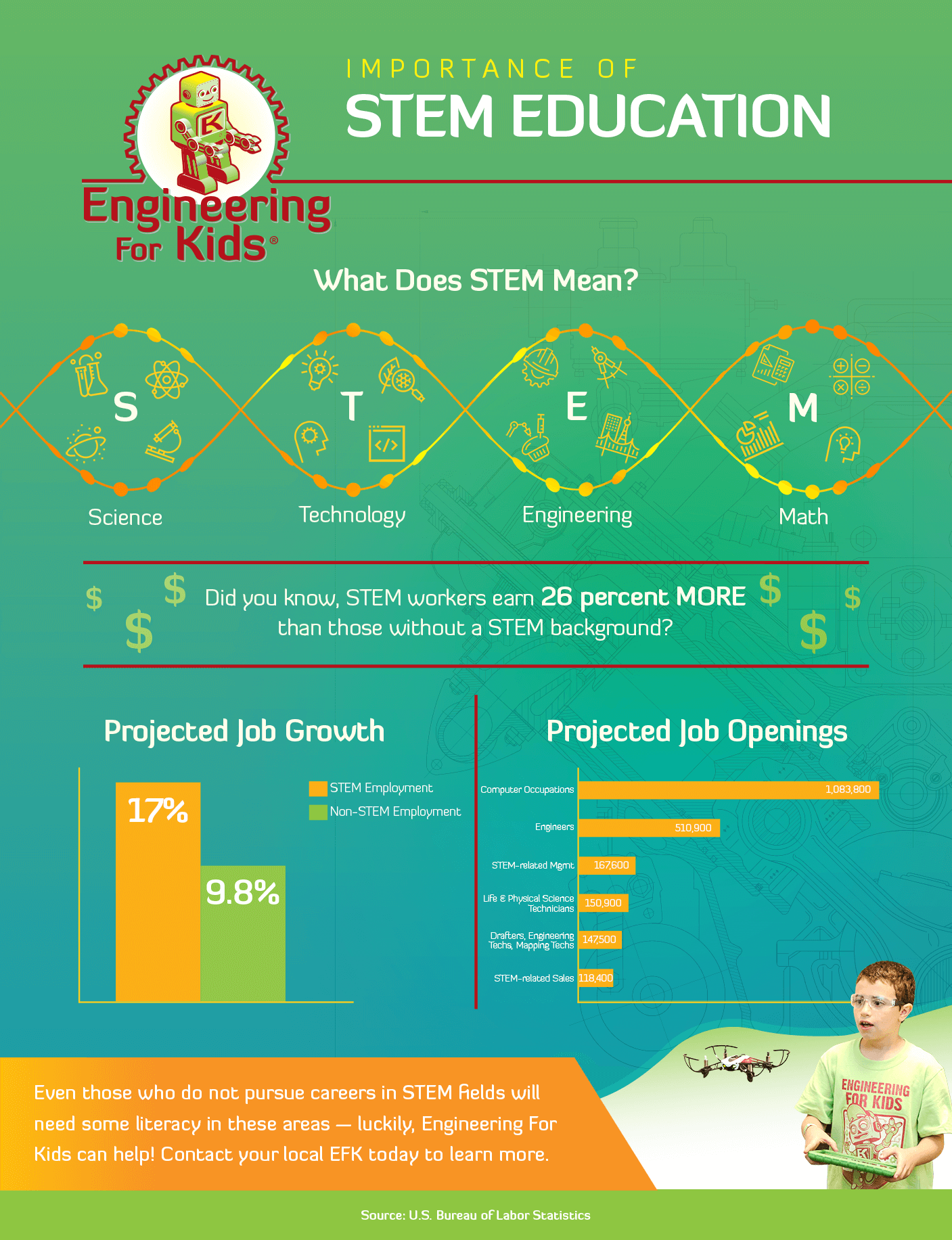
STEM education is paramount for shaping the future, driving innovation, and securing economic prosperity. According to the U. S. Department of Commerce, STEM occupations are growing at 24%, while other occupations are growing at 4%. Even in non-STEM careers, holders of STEM degrees tend to earn higher incomes. Professionals in science, technology, engineering, and mathematics sectors are instrumental in fostering the sustained growth and stability of the U.S. economy, playing a pivotal role in securing the nation’s future success.
STEM education goes beyond imparting knowledge; it nurtures critical thinking skills, enhances scientific literacy, and cultivates the next generation of trailblazers and problem solvers. The innovation stemming from STEM education drives the creation of new products and processes, providing the bedrock for economic sustenance. Building a strong foundation in STEM areas is crucial for fostering innovation and scientific literacy, forming the cornerstone for future success.
It’s evident that the future workforce will predominantly require a fundamental grasp of mathematics and science. However, despite these imperatives, average mathematics and science scores among U.S. students are trailing behind those of other developing countries. This accentuates the vital role of STEM education in shaping and empowering young students for the future. Understanding what STEM education is and recognizing its significance can significantly impact the trajectory of these young learners.
Related: What is STEM and Why Are You Hearing So Much About It?
What is STEM?
STEM stands for science, technology, engineering, and mathematics. STEM is important because it pervades every part of our lives. Science is everywhere in the world around us. Technology is continuously expanding into every aspect of our lives. Engineering is the basic designs of roads and bridges, but also tackles the challenges of changing global weather and environmentally-friendly changes to our home. Mathematics is in every occupation, every activity we do in our lives.
By exposing students to STEM and giving them opportunities to explore STEM-related concepts, they will develop a passion for it and hopefully pursue a job in a STEM field. A curriculum that is STEM-based has real-life situations to help the student learn. Programs like Engineering For Kids integrates multiple classes to provide opportunities to see how concepts relate to life in order to hopefully spark a passion for a future career in a STEM field. STEM activities provide hands-on and minds-on lessons for the student. Making math and science both fun and interesting helps the student to do much more than just learn.
Check out our STEM summer camps
Why STEM Education?
According to the National Science Foundation, “In the 21st century, scientific and technological innovations have become increasingly important as we face the benefits and challenges of both globalization and a knowledge-based economy. To succeed in this new information-based and highly technological society, students need to develop their capabilities in STEM to levels much beyond what was considered acceptable in the past.”
STEM education provides students with a well-rounded foundation of skills to help them understand a wide range of concepts and thrive in many industries.
Related: Interesting STEM Facts Every Parent Must Know
Why is STEM Important?
STEM education plays a pivotal role in addressing ethnic and gender disparities often witnessed in math and science fields. Various initiatives aim to boost the involvement of women and minorities in STEM-related professions, contributing to breaking traditional gender roles. The importance of STEM education cannot be overstated, especially in the context of global economic competitiveness, making it crucial for both national and international priorities. Virtually every decision involves an aspect of STEM, emphasizing its pervasive impact.
The significance of STEM education lies in upholding the United States’ position as a global leader. Failure to enhance STEM education could lead to a decline in the country’s ranking in math and science scores globally, endangering its global standing. Encouraging STEM education in schools is key to igniting students’ interest in pursuing STEM careers. However, the responsibility for STEM education doesn’t solely rest with teachers; parents play a crucial role in fostering their children’s engagement in STEM activities at home and in extracurricular settings, understanding the importance of STEM education.
Supplementary programs beyond conventional schooling are instrumental in showcasing the real-world relevance of STEM, linking classroom learning to practical implications in society and the broader world. These programs illustrate the relevance of what children learn today to their future and the world’s future, sparking interest often absent when learning abstract concepts. For instance, Engineering For Kids offers an array of STEM enrichment programs for children aged 4 to 14, demonstrating the practical applications of STEM concepts in real life, contributing to a deeper understanding and appreciation of STEM education.
Get to know more about STEM education at Engineering For Kids by finding your nearby location today.





